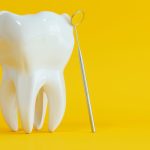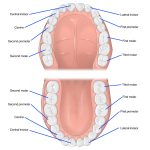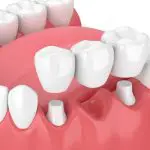Why Your Bottom Teeth Tingle: Causes and Remedies
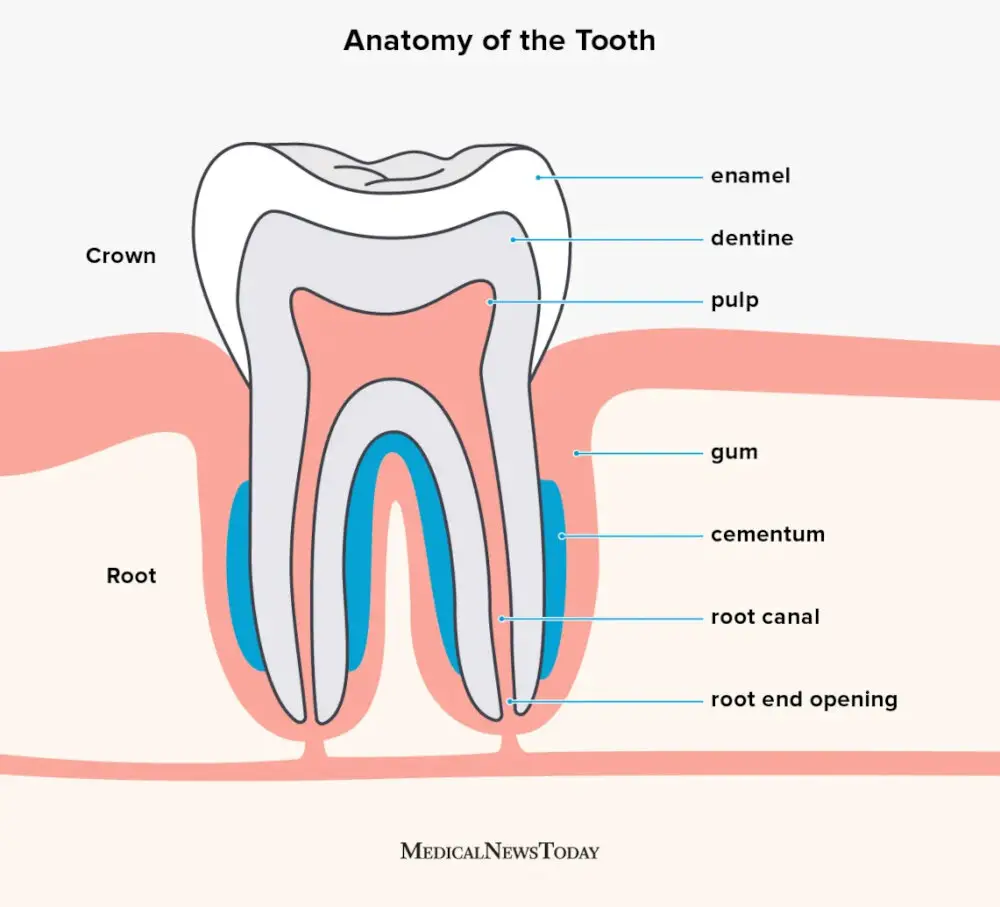
Are you experiencing a tingling sensation in your bottom teeth? This uncomfortable feeling can be caused by a variety of factors, from minor issues like teeth grinding to more serious conditions like gum disease. Understanding the causes of this sensation is crucial in finding the right remedy to alleviate the discomfort and prevent further damage to your teeth and gums. One of the most common causes of tingling in bottom teeth is teeth grinding or clenching. This habit can put excessive pressure on your teeth and cause the nerves to become irritated, resulting in a tingling or even aching sensation. Other potential causes include gum disease, tooth decay, and even sinus infections. If you’re experiencing a persistent tingling sensation in your bottom teeth, it’s important to consult with a dental professional to identify the underlying cause and determine the best course of treatment.
If you’ve ever felt a tingling sensation in your bottom teeth, it can be a strange and uncomfortable sensation. The sensation can feel like a slight vibration or a mild electric shock in your teeth, and it can be accompanied by other symptoms such as numbness, sensitivity, or pain. The tingling sensation can be caused by a variety of factors, including dental issues such as cavities or gum disease, sinus problems, ear infections, or nerve damage. It’s important to identify the underlying cause of the tingling sensation to properly treat it and prevent further complications.
Understanding the causes and remedies of tingling in your bottom teeth is crucial for maintaining your oral health. It is not only an indication of a dental problem, but it can also be a symptom of underlying health issues. Neglecting the tingling sensation can lead to severe dental problems such as tooth decay and gum disease. Therefore, understanding the causes of the tingling sensation can help you identify the root cause and take necessary steps to prevent the problem from escalating. Similarly, knowing about the possible remedies can help you alleviate the discomfort and prevent the problem from recurring. Hence, it is essential to educate yourself about the causes and remedies of tingling in your bottom teeth and take appropriate measures to maintain good oral hygiene.
Dental Issues

Dental issues can be a major concern for many individuals, and one of the most common issues that people face is tingling in their bottom teeth. This sensation can be caused by a number of different factors, including tooth decay, gum disease, or even an underlying medical condition. In some cases, the tingling may be a sign of a more serious problem, such as nerve damage or an infection, and it is important to seek professional dental care if the symptoms persist. However, in many cases, the tingling can be treated with simple remedies, such as improving oral hygiene, using a desensitizing toothpaste, or avoiding certain foods and drinks. One of the best ways to prevent dental issues is by maintaining good oral hygiene habits, including brushing and flossing regularly and visiting the dentist for routine checkups. Additionally, it is important to avoid smoking and limit your intake of sugary and acidic foods and drinks, which can contribute to tooth decay and other dental problems. If you are experiencing tingling in your bottom teeth, it is important to identify the underlying cause and seek appropriate treatment as soon as possible. With the right care and attention, you can maintain a healthy smile and prevent dental problems from impacting your overall health and wellbeing.
Tooth decay and cavities are common dental problems that occur when bacteria in the mouth produce acid that erodes the tooth enamel. This can lead to holes or pits in the teeth, which can cause sensitivity, pain, and even infection. Poor oral hygiene, frequent snacking or drinking sugary drinks, and a lack of fluoride in the diet can all contribute to the development of tooth decay and cavities. In order to prevent these issues, it is important to brush and floss regularly, limit sugary snacks and drinks, and use fluoride toothpaste or mouthwash. If you do experience tooth decay or cavities, your dentist can provide treatment options such as fillings, root canals, or crowns to help restore your teeth and alleviate any discomfort.
Gum disease or periodontitis is a serious oral health condition that affects the gums and supporting tissues of the teeth. It is caused by the accumulation of plaque and bacteria around the teeth, which leads to inflammation, bleeding, and eventually, tooth loss. The symptoms of gum disease include red, swollen, and tender gums, bad breath, and loose teeth. If left untreated, gum disease can lead to more serious health problems such as heart disease, stroke, and diabetes. To prevent gum disease, it is important to practice good oral hygiene habits, such as brushing and flossing regularly, and to visit the dentist for regular checkups and cleanings.
Bruxism, commonly known as teeth grinding, is a condition where a person involuntarily grinds or clenches their teeth, often during sleep. The pressure exerted during grinding can cause tingling or numbness in the teeth and surrounding areas, leading to discomfort and pain. Bruxism can also cause tooth wear, fractures, and even tooth loss, making it a serious condition that requires timely intervention. Causes of bruxism include stress, anxiety, and sleep disorders, while remedies range from stress management techniques and relaxation exercises to dental appliances and medications. It is important to seek professional help if you suspect that you are suffering from bruxism to prevent further damage and alleviate symptoms.
Misaligned teeth, also known as malocclusion, is a condition in which the teeth are not properly aligned when the jaw is closed. This can lead to a variety of problems, including difficulty biting and chewing, speech difficulties, and even jaw pain. Misaligned teeth can be caused by genetics, poor oral hygiene, and a number of other factors. Treatment options for misaligned teeth include braces, retainers, and other orthodontic devices, as well as surgical procedures in some cases. It is important to address misaligned teeth as soon as possible to prevent further complications and improve overall oral health.
Medical Conditions
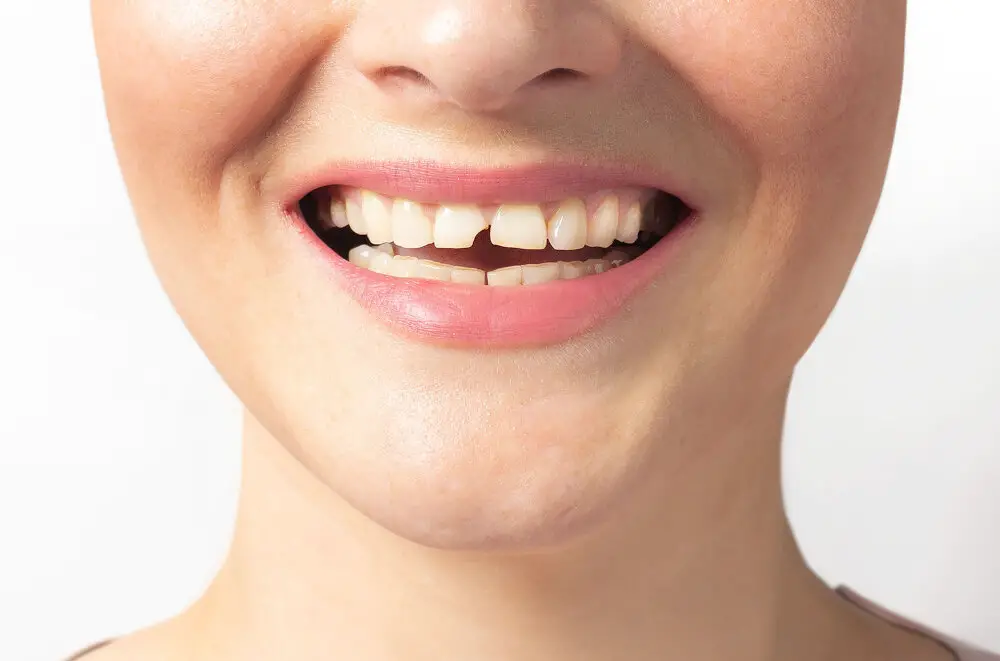
Medical conditions can be a significant cause of tingling in the bottom teeth. When the nerves in the mouth and face become damaged, it can lead to numbness and tingling sensations. One condition that can cause these symptoms is trigeminal neuralgia. This is a chronic pain condition that affects the trigeminal nerve, which is responsible for facial sensation. The pain can be severe and sudden, and it can affect the teeth, gums, and jaw. Other medical conditions that can cause tingling in the bottom teeth include multiple sclerosis and diabetes. In some cases, the tingling may be a side effect of medication used to treat these conditions. If you are experiencing tingling in your bottom teeth, it is important to consult with your doctor to determine the underlying cause and appropriate treatment. Fortunately, many medical conditions that can cause tingling in the bottom teeth can be managed with proper treatment. If you have trigeminal neuralgia, your doctor may recommend medications to manage the pain. For other conditions, such as multiple sclerosis and diabetes, controlling blood sugar levels and taking medications as prescribed can help reduce symptoms. If your tingling is a side effect of medication, your doctor may adjust your dosage or prescribe a different medication. In some cases, surgery may be necessary to alleviate the underlying cause of the tingling sensation. Regardless of the cause, it is important to seek medical attention if you are experiencing persistent or severe tingling in your bottom teeth.
While tingling sensation in the bottom teeth can be caused by a variety of factors, one potential cause that is often overlooked is vitamin deficiencies. Specifically, deficiencies in vitamins B12 and D can lead to nerve damage and tingling sensations in the teeth and gums. Vitamin B12 is essential for the proper formation of red blood cells and the maintenance of the nervous system, while vitamin D plays a crucial role in the absorption of calcium and the maintenance of healthy teeth and bones. If you suspect that your tingling teeth may be caused by a vitamin deficiency, it is important to consult with a healthcare professional to identify the underlying cause and determine the appropriate course of treatment.
Nerve disorders are conditions that affect the nervous system, which includes the brain, spinal cord, and nerves that transmit signals throughout the body. These disorders can cause a variety of symptoms, including tingling, numbness, weakness, and pain. Some common nerve disorders that may cause tingling in the bottom teeth include trigeminal neuralgia, multiple sclerosis, and peripheral neuropathy. Treatment for these disorders varies depending on the underlying cause and may include medications, physical therapy, or surgery. It is important to seek medical attention if you experience any symptoms of a nerve disorder, as early diagnosis and treatment can help prevent further complications.
Sinus infections, also known as sinusitis, are a common condition that occurs when the tissue lining the sinuses becomes inflamed or infected. This can cause symptoms such as congestion, facial pain, and pressure, as well as a tingling sensation in the teeth and gums. The sinuses are air-filled spaces located in the bones of the face and skull, and when they become blocked or infected, it can lead to an uncomfortable and sometimes painful sensation in the mouth and teeth. Treatment for sinus infections may include antibiotics, nasal decongestants, and other medications to relieve symptoms and promote healing.
Temporomandibular joint (TMJ) disorder is a condition that affects the joint that connects the jawbone to the skull. This joint is responsible for the movement of the jaw, allowing us to speak and chew our food. When this joint is not functioning correctly, it can lead to a variety of symptoms, including tingling in the teeth. Some of the common causes of TMJ disorder include clenching or grinding the teeth, injury to the jaw, and arthritis. To treat TMJ disorder, a variety of approaches may be used, including lifestyle changes, medications, and physical therapy. In some cases, surgery may be required to correct the problem. If you’re experiencing tingling in your bottom teeth, it’s important to speak with your dentist to determine the underlying cause and the appropriate treatment.
Lifestyle Factors
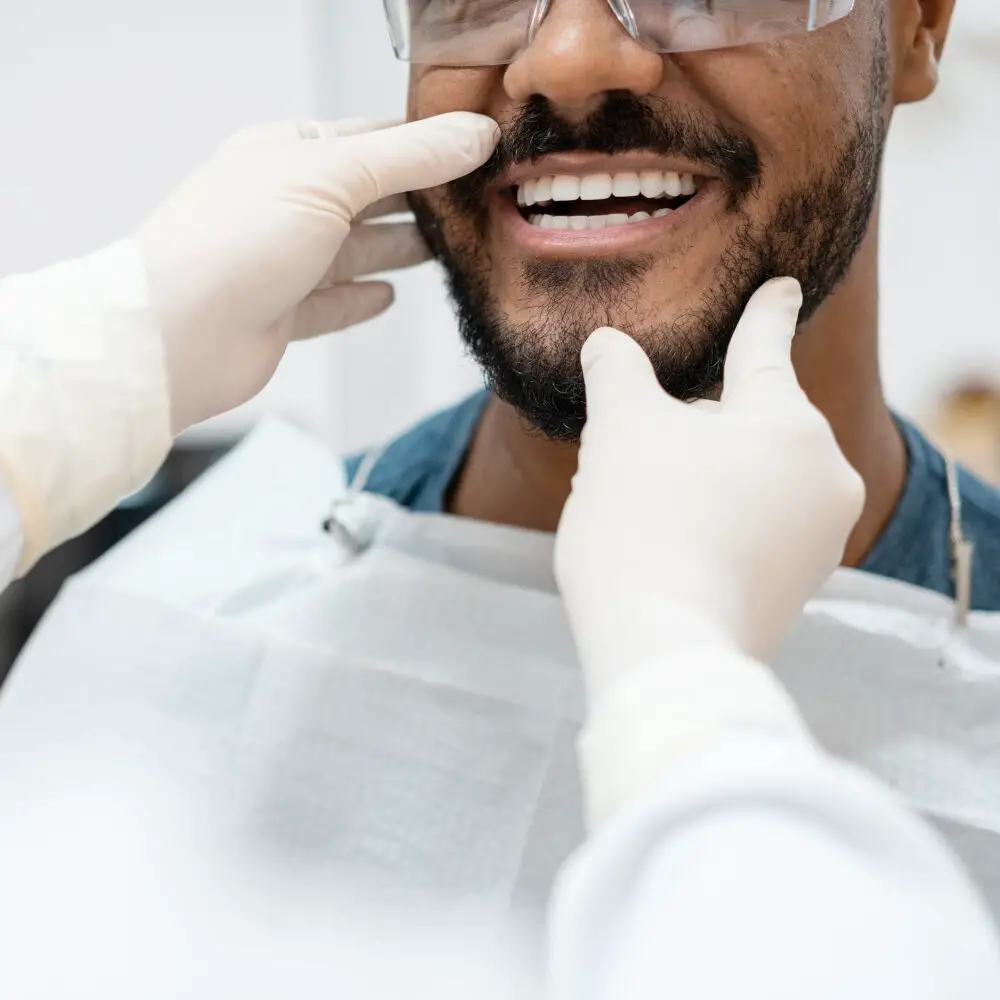
Lifestyle factors play a crucial role in maintaining the overall health of an individual. The food we eat, the activities we perform, and the habits we adopt all contribute to our well-being. When it comes to dental health, lifestyle factors can significantly impact the health of our teeth and gums. Smoking, for instance, is a notorious habit that can cause a range of dental problems, including tooth decay, gum disease, and even oral cancer. Additionally, consuming sugary and acidic foods and drinks can also lead to dental issues. These substances can erode the enamel of our teeth and cause cavities. Therefore, it is essential to maintain a healthy lifestyle that includes a balanced diet, regular exercise, and avoiding harmful habits such as smoking, which can impact our dental health. Another lifestyle factor that can cause tingling in the bottom teeth is stress. Stress can manifest itself in numerous ways and can lead to a range of issues, including headaches, muscle tension, and even dental problems. When we are stressed, we tend to clench our teeth, which can cause pressure on the jaw muscles and lead to tingling and discomfort in the bottom teeth. Therefore, it is essential to manage stress through various techniques such as meditation, deep breathing exercises, and engaging in relaxing activities such as yoga or reading. By managing our stress levels, we can prevent dental problems and maintain healthy teeth and gums.
Although smoking and tobacco use have been linked to various health problems, many people continue to engage in these harmful habits. The chemicals in cigarettes and other tobacco products can cause damage to the teeth and gums, as well as increase the risk of oral cancer. The nicotine in tobacco can also constrict blood vessels, reducing blood flow to the gums and increasing the risk of gum disease. Quitting smoking and other tobacco use is essential for maintaining good oral health, as well as overall health and well-being. There are many resources available to help individuals quit smoking, including nicotine replacement therapy, counseling, and support groups.
Alcohol and caffeine consumption can have a significant impact on the tingling sensation in your bottom teeth. Both substances can cause dehydration, which can lead to a decrease in saliva production. Saliva plays a critical role in protecting your teeth and gums from harmful bacteria. Without enough saliva, your teeth may become more vulnerable to decay and sensitivity. Additionally, alcohol can cause the blood vessels in your mouth to dilate, which can increase blood flow to your teeth and exacerbate any existing sensitivity. Limiting your intake of alcohol and caffeine or ensuring you stay hydrated can help reduce the likelihood of tingling in your bottom teeth.
While poor diet and nutrition can have a profound impact on overall health, it can also contribute to dental problems such as tooth sensitivity. A diet that is high in sugar, acidic foods and drinks, and processed foods can contribute to tooth decay and erosion of the enamel. Additionally, a lack of essential nutrients such as calcium and vitamin D can weaken teeth and lead to increased sensitivity. It’s important to maintain a balanced diet that includes plenty of fruits and vegetables, lean proteins, and dairy products to support both overall health and dental health.
Stress and anxiety are common culprits behind the tingling sensation in your bottom teeth. When we experience stress or anxiety, our bodies release cortisol, a hormone that triggers the fight-or-flight response. This response causes our muscles to tense up, including those in the face and jaw, which can lead to tingling or numbness in the teeth and gums. Additionally, stress and anxiety can cause us to clench or grind our teeth, which puts pressure on the nerves and can exacerbate tingling sensations. To alleviate these symptoms, it’s important to practice stress-reducing techniques like deep breathing, exercise, and meditation, and to wear a mouthguard at night to prevent teeth grinding.
Remedies

When you experience tingling in your bottom teeth, it can be a very unpleasant sensation that can cause discomfort and anxiety. Fortunately, there are several remedies that can help alleviate this symptom. One of the most effective remedies is to practice good oral hygiene. This includes brushing your teeth twice a day, flossing daily, and using mouthwash regularly. By keeping your teeth and gums clean and healthy, you can reduce your risk of developing tooth decay, gum disease, and other oral health problems that can cause tingling in your teeth. Another effective remedy for tingling in your bottom teeth is to avoid consuming acidic foods and drinks. Acidic substances can erode the enamel on your teeth, which can lead to sensitivity and tingling. To reduce your risk of developing these symptoms, avoid consuming acidic foods and drinks such as citrus fruits, soda, and vinegar. Instead, opt for alkaline foods and drinks such as milk, cheese, and water. By following these remedies, you can help alleviate the tingling in your bottom teeth and improve your overall oral health.
Maintaining good oral hygiene is crucial for preventing various dental problems, including tingling in the bottom teeth. Regular brushing and flossing of teeth can prevent the buildup of plaque and bacteria that can lead to tooth decay and gum disease. It is also important to avoid sugary and acidic foods and drinks that can erode the enamel and cause sensitivity in the teeth. Additionally, visiting your dentist for professional cleanings and check-ups can identify early signs of dental issues and prevent them from progressing. Incorporating these habits into your daily routine can help keep your teeth and gums healthy and prevent uncomfortable tingling sensations in your bottom teeth.
Regular dental checkups and cleanings are an essential aspect of maintaining good dental health. These visits to the dentist can help prevent a wide range of dental problems, from cavities to gum disease, by identifying and treating issues before they become more serious. During a dental checkup, dentists can identify any signs of tooth decay or gum disease and recommend the appropriate treatment. Regular cleanings also help to remove plaque and tartar buildup, which can lead to tooth decay and other dental issues. By staying on top of your dental health with regular checkups and cleanings, you can help keep your teeth healthy, prevent problems, and avoid unpleasant sensations like tingling in your bottom teeth.
Supplements and medications, as prescribed by a healthcare professional, can play a vital role in treating the underlying causes of tingling in the bottom teeth. Nutritional supplements such as B vitamins, magnesium, and calcium may be recommended to address deficiencies that could be contributing to nerve sensitivity. Additionally, medications such as anti-inflammatory drugs or nerve pain medications may be prescribed to alleviate discomfort and reduce inflammation. However, it’s important to follow the recommended dosages and usage instructions carefully, and to consult with a healthcare provider before starting any new supplements or medications.
Making positive lifestyle changes can have a significant impact on the health of your teeth and overall well-being. Quitting smoking not only reduces the risk of oral cancer, but also improves circulation and helps prevent gum disease. Reducing alcohol and caffeine intake can also benefit your oral health by decreasing the risk of dry mouth, which can lead to tooth decay and other dental problems. Managing stress through relaxation techniques such as meditation or yoga can also help reduce the risk of teeth grinding, which can cause tingling sensations in the bottom teeth. By making these lifestyle changes, you can improve the health of your teeth and enjoy a happier, healthier life.
Tingling sensation in bottom teeth can be due to various reasons such as poor oral hygiene, tooth decay, gum disease, teeth grinding, and nerve damage. Poor dental hygiene can cause plaque buildup, leading to tooth decay and gum disease, which can cause tingling in the teeth. Tooth grinding can damage tooth enamel and cause nerve irritation, leading to tingling. The best way to prevent tingling in the bottom teeth is to maintain good oral hygiene, including brushing and flossing regularly, visiting a dentist regularly, and avoiding smoking and excessive alcohol consumption. Treatment options depend on the underlying cause, which may include fillings, root canals, or periodontal treatment. In severe cases, surgery may be necessary to repair nerve damage or remove a damaged tooth.
If you’re experiencing any persistent or worsening symptoms related to your bottom teeth, it’s important to seek professional advice from a dentist or dental professional. While there may be several causes for tingling or other sensations in the lower teeth, untreated dental issues can lead to serious complications such as gum disease or tooth loss. Seeking professional help ensures that the root cause of the problem is identified and addressed effectively. Moreover, a dental professional can provide valuable advice on how to prevent future occurrences of the problem and maintain good oral health. Don’t ignore persistent or worsening symptoms related to your teeth – seek professional advice today.
Conclusion

In conclusion, the sensation of tingling in the bottom teeth can be caused by a variety of factors, ranging from minor issues such as poor oral hygiene to more serious dental conditions like nerve damage. It is important to identify the underlying cause and seek appropriate treatment to prevent further complications. Remedies such as using desensitizing toothpaste, avoiding acidic foods and beverages, and maintaining good dental hygiene practices can also help alleviate the discomfort. Regular dental check-ups and consultations with a dental professional can aid in maintaining optimal oral health and preventing future dental problems. Don’t ignore the warning signs and take action to keep your teeth and gums healthy and pain-free.
